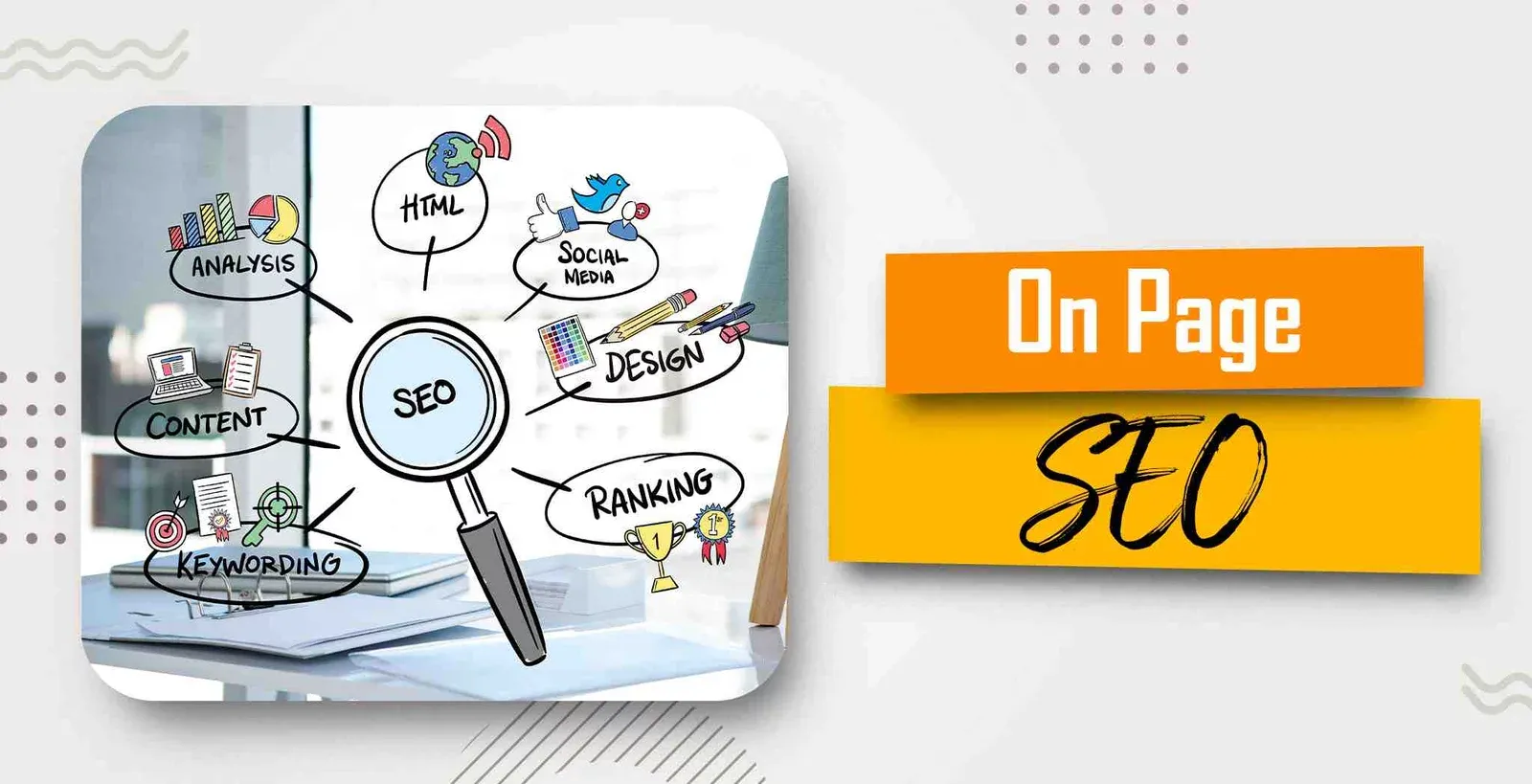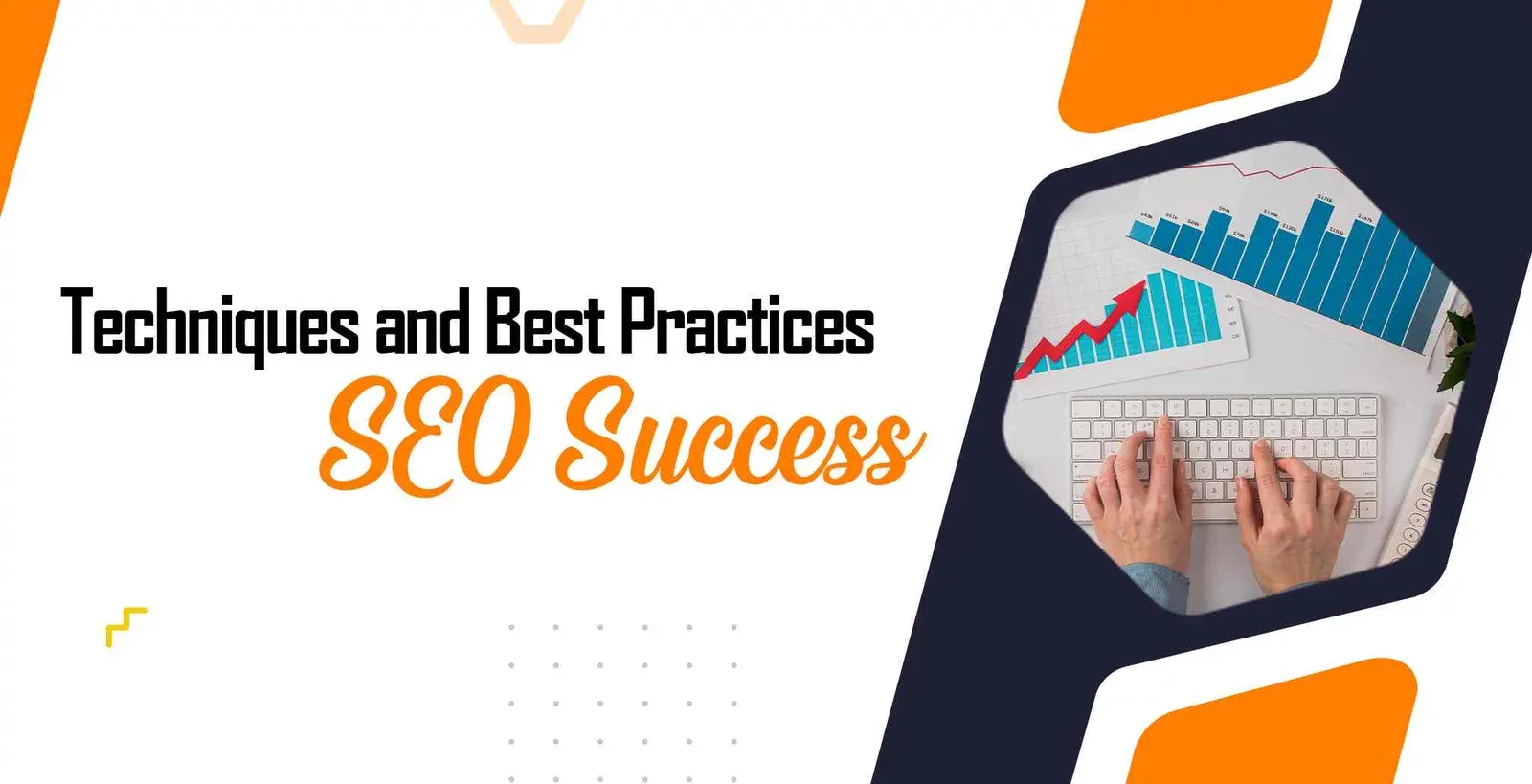In the digital landscape, Search Engine Optimization (SEO) is important for getting many people to visit websites without needing to pay for ads. And within the SEO realm, on-page optimization is a crucial pillar. In this blog, we will explain how to optimize your web pages and rank higher on search engines. Following these tips and techniques can make the most of SEO and boost your online presence. Get ready to learn the secrets of on-page optimization and take your website to new heights. The Importance of On-Page Optimization in SEO (Search Engine Optimization) Is Significant for Several Reasons 1. Improved Search Engine Rankings By optimizing on-page elements such as meta tags, headings, keyword usage, and content quality, search engines can better understand and index your web page. This can help more people find your website when they search, bringing more visitors without paying for ads. 2. Enhanced User Experience On-page optimization focuses on improving the overall user experience by optimizing page load speed, mobile responsiveness, and navigation structure. When users have a positive experience on your website, they are likelier to stay longer, engage with your content, and convert into customers or subscribers. 3. Targeted Keyword Optimization On-page optimization lets you strategically incorporate relevant keywords into your content, headings, and meta tags. By aligning your page content with targeted keywords, you increase the chances of ranking higher for those keywords in search engine results. 4. Increased Click-Through Rates (CTR) Effective on-page optimization techniques such as compelling meta titles and descriptions can entice users to click on your search listings. A higher CTR indicates to search engines that your webpage is relevant and valuable, which can lead to improved rankings over time. 5. Better Content Visibility and Organization On-page optimization involves structuring your content logically and organizationally. This helps search engines better understand and organize your content, making it more likely to be seen as a highlighted answer or a special result. On-Page Optimization On-page optimization means changing individual web pages to make them appear more in search engine results and attract more visitors naturally. This involves improving the pages themselves and their underlying code to make them more relevant, user-friendly, and easily understandable by search engines. Here Are Some Key Components of On-Page Optimization: 1. Keyword Research Find the right words and phrases that people will likely use when searching for information about your website or business. 2. Title Tags Creating unique and descriptive title tags for each web page that accurately reflect its content and include targeted keywords. Title tags are displayed as clickable headlines in search engine results. 3. Meta Descriptions Write concise and compelling meta descriptions that summarise the page’s content and entice users to click through to your website. While meta descriptions don’t directly affect rankings, they can influence click-through rates. 4. URL Structure Ensuring URLs are clean, concise, and contain relevant keywords. A well-structured URL gives search engines and users an idea of what the page is about. 5. Heading Tags Use heading tags (H1, H2, H3, etc.) to structure your content and highlight important sections. Search engines use heading tags to understand the hierarchy and organization of your content. 6. Keyword Placement Strategically place keywords throughout your content, including in headings, subheadings, and body text. However, it’s essential to maintain a natural and user-friendly flow while avoiding keyword stuffing. 7. Content Optimization Creating high-quality, informative, and engaging content that satisfies user intent. This involves addressing relevant topics, providing valuable information, and incorporating multimedia elements such as images, videos, and infographics. 8. Internal Linking Linking to other relevant pages within your website using descriptive anchor text. Internal links help search engines discover and navigate your website and enhance user experience by providing additional information. 9. Image Optimization Optimizing images by reducing file sizes, using descriptive filenames, and adding alt tags. Making your images better helps your website run faster and makes it easier for search engines to understand what your images are about and why they’re important. 10. Mobile Responsiveness Ensuring your website is mobile-friendly and displays properly on different devices and screen sizes. Mobile responsiveness is crucial for user experience and search engine rankings as mobile usage continues to rise. Analysis and Monitoring as Prerequisites for Onpage Optimization Analysis and monitoring are essential prerequisites for effective on-page optimization. They provide valuable insights and data that inform the optimization process, enabling website owners and marketers to make informed decisions. Here’s a crisp and creative explanation: “Imagine your website is a high-performance race car; on-page optimization is the key to unlocking its full potential. But before you hit the gas pedal, you must analyze and monitor every aspect of your car’s performance to ensure a smooth and successful ride. An analysis is like taking your race car to the garage for a thorough inspection. You examine its engine, tires, aerodynamics, and every detail affecting its performance. Similarly, with on-page optimization, you analyze your website’s structure, content, keywords, and user experience. By examining what your website does well and where it needs improvement, you can find new opportunities and learn how search engines see your site. Monitoring is like having a skilled pit crew constantly monitoring your race car’s performance during the race. They track its speed, fuel consumption, tire wear, and any signs of trouble. In the world of on-page optimization, monitoring involves closely monitoring your website’s performance metrics, such as rankings, traffic, bounce rates, and conversions. It helps you spot any issues, track the impact of optimization efforts, and make timely adjustments. By conducting in-depth analysis and diligent monitoring, you equip yourself with the knowledge and insights to fine-tune your on-page optimization strategy. It’s like fine-tuning your race car’s engine, adjusting the suspension, and optimizing the aerodynamics for maximum speed and performance. With analysis and monitoring as your prerequisites, you’re ready to unleash the full potential of your website and leave your competitors in the dust.” Elements of On-page Optimization On-page optimization refers to the various techniques and practices used to optimize individual
In the dynamic world of search engine optimization (SEO), link-building remains a crucial strategy for enhancing website visibility and driving organic traffic. “Link Building: Techniques and Best Practices for SEO Success” is a comprehensive guide that unravels the art and science of effective link building. Whether you’re a seasoned SEO professional or a novice marketer, this book equips you with the knowledge and tools to navigate the ever-changing link-building landscape. This blog provides easy-to-understand information and useful tips to help you succeed in SEO by building strong and effective links. It covers everything from basic ideas to advanced strategies. What Is Link Building? Link building is the art of acquiring hyperlinks from other websites to your own. It’s like building a network of connections across the vast online landscape. These links work like approvals, showing search engines that your website is reliable and related to the topic. They act as a vote of confidence, signaling that other websites find your content trustworthy and valuable. Imagine your website is a party, and each link is an invitation from another website to attend. The more quality invitations you receive, the more popular and important you appear to search engines. But here’s the twist: not all invitations are created equal. Search engines value links from reputable, authoritative websites more than those from random or spammy sources. It’s like getting an invitation from a popular celebrity versus an unknown stranger. To win at link building, you need to be strategic. You can create amazing content that naturally attracts links, like a magnetic personality that draws others in. You can also contact website owners and explain to them why it would be beneficial for their visitors and reputation to link to your site. By convincing them of the advantages, you can encourage them to include links to your website. Remember, the goal is to build an impressive network of links that elevate your website’s credibility, increase its visibility in search results, and ultimately drive more traffic. So start building those valuable connections in the vast online party of the internet! How Does Link Building Work? Link building is like weaving a web of connections across the vast landscape of the internet. It’s a strategic dance where websites hold hands and give each other a boost in popularity. Imagine you’re a website owner and want your online kingdom to thrive. It would help if you had other websites to recognize your worth and credibility to achieve this. How? Through link building! It starts with creating exceptional content that captivates readers and web admins alike. Once your content shines like a beacon in the digital realm, other website owners will notice. They’ll appreciate your expertise and relevance, eager to share it with their visitors. These generous souls will embed hyperlinks within their content, directing their readers to your website. These links act as virtual nods of approval, telling search engines that you’re a trustworthy source. As the number of quality links pointing to your website increases, so does your online authority. But wait, not all links are created equal! The real magic lies in acquiring backlinks from reputable websites relevant to your niche. It’s like receiving recommendations from experts in your field. The more endorsements you gather, the higher the search engines will rank you. However, tread carefully! Search engines despise deceitful tactics and spammy link farms. So, it’s crucial to play by the rules. Focus on building genuine relationships, earning natural backlinks, and contributing value to the internet community. Link building is an art that intertwines collaboration, creativity, and credibility. By embracing this web of connections, you’ll elevate your online kingdom, attracting more visitors and reigning supreme in the digital realm. Why Are Links So Important? Links are like the secret sauce of the internet, sprinkling magic and connectivity into the vast web of information. They serve as digital bridges, connecting different websites, pages, and resources. But why are these humble hyperlinks so important? Let me explain with a touch of creativity. 1. Explore New Worlds Links are like portals to uncharted territories. They transport you from one webpage to another, inviting you to dive into a world of endless possibilities. Like Alice falling down the rabbit hole, clicking a link can lead you to fascinating discoveries, from insightful articles to captivating videos. 2. Boost Visibility Imagine links as neon signs in the bustling streets of the internet. Search engines use links to navigate and discover new content. When your website receives quality inbound links from reputable sources, search engines consider it a vote of confidence. This helps improve your website’s visibility in search results, making it more likely to attract visitors. 3. Web of Trust Trust is the foundation of any meaningful relationship, and the internet is no exception. Links provide a way for websites to vouch for each other’s credibility. When a trustworthy website links to your content, it signals to others that your information is reliable. In this vast digital universe, links act as endorsements, building a web of trust that keeps the internet’s ecosystem healthy. 4. Sharing is Caring In the age of social media, links are the lifeblood of content sharing. Whether it’s a thought-provoking blog post or a hilarious cat video, links make it easy to spread the word and share the love. With a simple click, you can easily share a link with anyone, whether it’s a friend, family member, or even someone you don’t know in another part of the world. This helps create connections and sparks conversations, bringing people closer together. 5. Connectivity for All The internet thrives on connections, and links are the glue that holds it all together. They create pathways between websites, allowing users to navigate seamlessly and explore vast information. Links empower us to jump from one idea to another, weaving a rich tapestry of interconnected knowledge. How to Find High-Quality Links? Finding high-quality links is essential for effective search engine optimization (SEO) and increasing your website’s visibility. Here’s a crisp and


